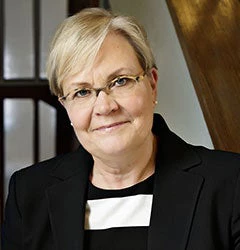During a visit to Sierra Leone a few months ago, I was struck by the commitment that the government has shown to making changes in delivering basic services—such as education, health, and water—so as to try to reach and benefit poor people. But it was also clear to me that while the government must continue to make improvements in its existing programs, it cannot reach all citizens immediately—and this is true in many low-income countries in Africa, especially those recovering from conflict or civil war.Africa is home to twenty such conflict-affected low-income countries, where service delivery has long been a challenge and vast regions often have little access to basic services. In these countries, where not a single Millennium Development Goal has been achieved so far and where conventional institutions cannot be set up overnight, how do governments reach pregnant women who have no access to skilled birth attendants? Or children who aren’t learning how to read? These women and children can’t wait.
Take South Sudan, Africa’s newest state, where a 2010 survey found that just 18% of women had given birth in the presence of a skilled attendant in the previous two years. While the new government is tasked with building systems for the long haul, are there partners they can work with now? NGOs, for example, provide roughly 85% of health services in South Sudan. If the common goal is to reach poor people who badly need services, who holds the key to reaching that goal faster and more effectively?
At the World Bank-IMF Annual Meetings in Washington this year, two Ministers of Finance—Hon. Minister Mapon from DRC and Hon. Minister Ngai from South Sudan—will discuss this question with Paul Collier, Director, Centre for the Study of African Economies at Oxford University; Dr. Samuel Mwenda, Chief Executive, African Christian Health Associations Platform; and Obiageli Ezekwesili, World Bank Vice President for Africa.
Yvonne Ndege, West Africa Bureau Chief of Al Jazeera, will moderate what I hope will be a candid discussion, leading to a stronger results in countries where development indicators are extremely low. Please join us online and it would be great if you submitted live questions to the panelists.
“Who holds the key? Innovative approaches to delivering services in post-conflict Africa” will be livestreamed on September 24 at 1630 UTC/GMT (12.30 p.m. Washington DC; 7.30 p.m. Juba).
Please join us. We want to hear from you.


Join the Conversation